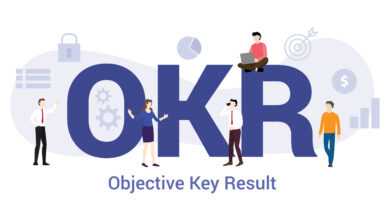The Power of Artificial Intelligence in Data Preparation and Integration

Leveraging the potential of artificial intelligence (AI) brings numerous solutions to businesses. That’s why nine out of ten leading companies invest in implementing AI into their business processes.
AI proves especially valuable when working with vast amounts of data. The machine learning (ML) branch of AI assists with data processing and analysis, enabling businesses to make data-driven decisions. Data preparation and integration play a crucial role in this process.
In this article, we will explore the aspects of data preparation and integration with the help of AI.
What Is Data Preparation?
Data preparation needs to be done before uploading data from various sources into ML mechanisms. This process, also known as “data reprocessing” or “data cleaning”, involves gathering and cleaning the data so that AI-powered platforms can produce accurate results.
Data scientists typically spend 22% of the time on the following data preparation processes:
- Data cleaning: Detecting errors and issues in the data and fixing them.
- Feature selection: Identifying the most important variables for ML algorithms.
- Data transformation: Converting raw data into a format that AI can process.

What Are the Challenges of Data Preparation?
Preparing the data for ML might be the most complicated part of data processing. Multiple issues often accompany it:
- Missing information: Gathering data from various sources often results in empty cells or missing characters.
- Not properly structured data: Different sources have unique formats, leading to a combination of different formats when aggregating the data.
- Anomalies: Abnormal data points that stand out significantly from the majority can distort the overall results.
- Feature engineering knowledge: Even though data gathering doesn’t sound as complicated, understanding it requires feature engineering expertise.
What Is Data Integration?
Data integration involves merging information from various sources for the purpose of analysis and processing. In modern organizations, data comes from external and internal sources, making data integration crucial for further reporting and management.
Like data preparation, data integration poses its own set of challenges.

Data Silos
Data stored in different systems creates data silos, which hinder data sharing and aggregation across departments of the company.
Data Security
Compliance with security standards and data governance policies can be complex to achieve during data integration.
Data Heterogeneity
Data from different sources may have varying formats, requiring data scientists’ effort to transform them into a unified format.
Lack of Expertise
Some organizations lack experts with experience in working with open-source, on-premise, cloud-based, or proprietary data integration tools. Hiring new specialists may bring about additional costs for a company.
How AI Can Help
Organizations can benefit from transforming data into valuable information by using the power of platform AI. AI and ML empower data processing procedures, preparation, and integration, offering solutions to the challenges mentioned above.
- Data mapping and discovery: AI technologies can automatically gather data from various sources and unify it according to a single data model, reducing the need for manual intervention and hiring extra talent
- Error detection and fixing: AI can identify and rectify inconsistencies, anomalies, missing data, and formatting issues. So when you extract data from other sources, you will not have to sit for hours and reprocess it manually.
- Real-time modeling: AI platforms allow monitoring data in real time, enabling swift data integration as soon as changes occur in the source
- Enhanced security: AI technologies allow us to detect suspicious activities and alert users before data leaks happen. This can help companies meet all the security standards and ensure data safety.

Final Words
Data preparation and integration are huge processes that demand effort and time. Handling them manually will stall the business processes while waiting for data gathering, cleaning, formatting, and uploading to be completed.
AI platforms elevate data processing to a new level, offering automation and real-time monitoring, and allowing businesses to focus on planning their development and scaling strategies.



